Best African Foods for Eye Health
By Victoria Aiyegbusi, Freelance Health Writer and Dateline Health Africa (DLHA) Volunteer. Medically reviewed by the DLHA Team

African woman wearing glasses. Image by rawpixel.com on Freepik
Vision is very important to human beings, hence, much priority is placed on the eyes. According to the WHO, visual impairment occurs when a disorder affects the visual system and its functions.
Without good eyesight, people tend to struggle with activities of daily living. Hence, the importance of tending to this precious gift called vision.
Ageing is the primary risk factor for many eye conditions. In Africa though, non-infectious eye disorders like glaucoma, cataracts, and refractive errors are the top 3 leading eye problems.
This article aims to enlighten you on healthy and accessible foods in African countries that support your vision and keep your eyesight functioning optimally. It would also shed light on foods that are bad for your eyes.
Read on and learn.
These are discussed under two broad categories:
Researchers have linked these eye healthy micronutrients to reducing the risk of some serious eye disorders like cataract, night blindness and age related macular degeneration (AMD).
Eye-healthy micronutrients that are also rich in antioxidants can be found in green leafy vegetables, fruits, nuts and many other foods that are abundant in several African countries.
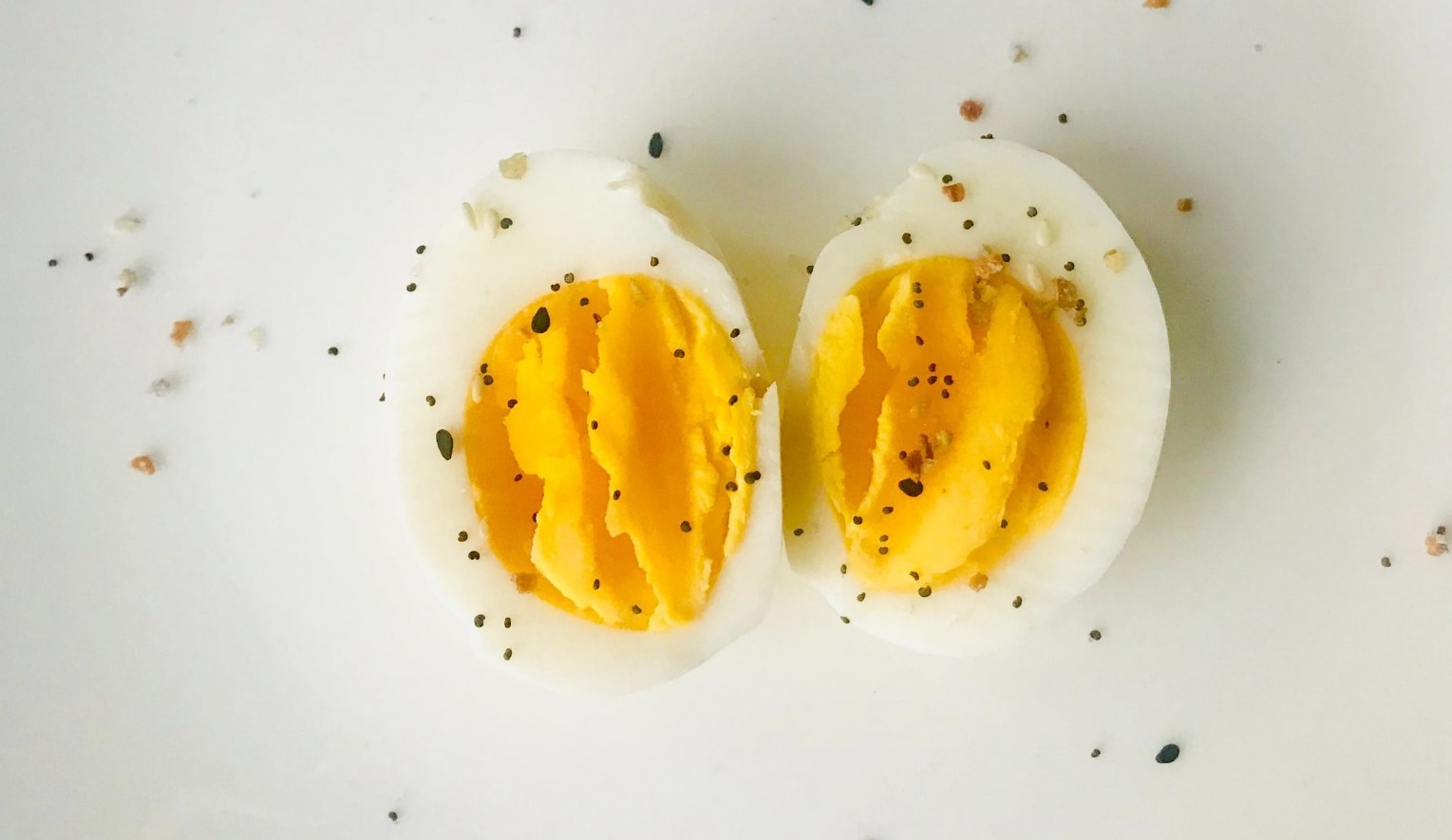
Egg yolk. Photo by Mona Sabha Cabrera on Pexel
Did you know that the yellow part (yolk) of an egg contains xanthophyll carotenoids that are healthy for the eyes and can prevent eye diseases? The high cholesterol content of eggs serves as a suitable environment for the transport of important antioxidants to the eyes and other parts of the body.
These eye antioxidants are Lutein and Zeaxanthin.
This doesn't mean the whole egg is not beneficial to your eyes. It is. However, the lutein and zeaxanthin levels are highest when the egg yolk is consumed raw. If that sounds unbearable, boiling the yolk is also beneficial.
This recommendation is not suitable for all. If you already have a high cholesterol level, then you need to talk with your healthcare provider on the right amount of egg you can consume weekly. If you are in the category of people whose cholesterol levels are being monitored, the consumption of egg yolk once in a while won't hurt.
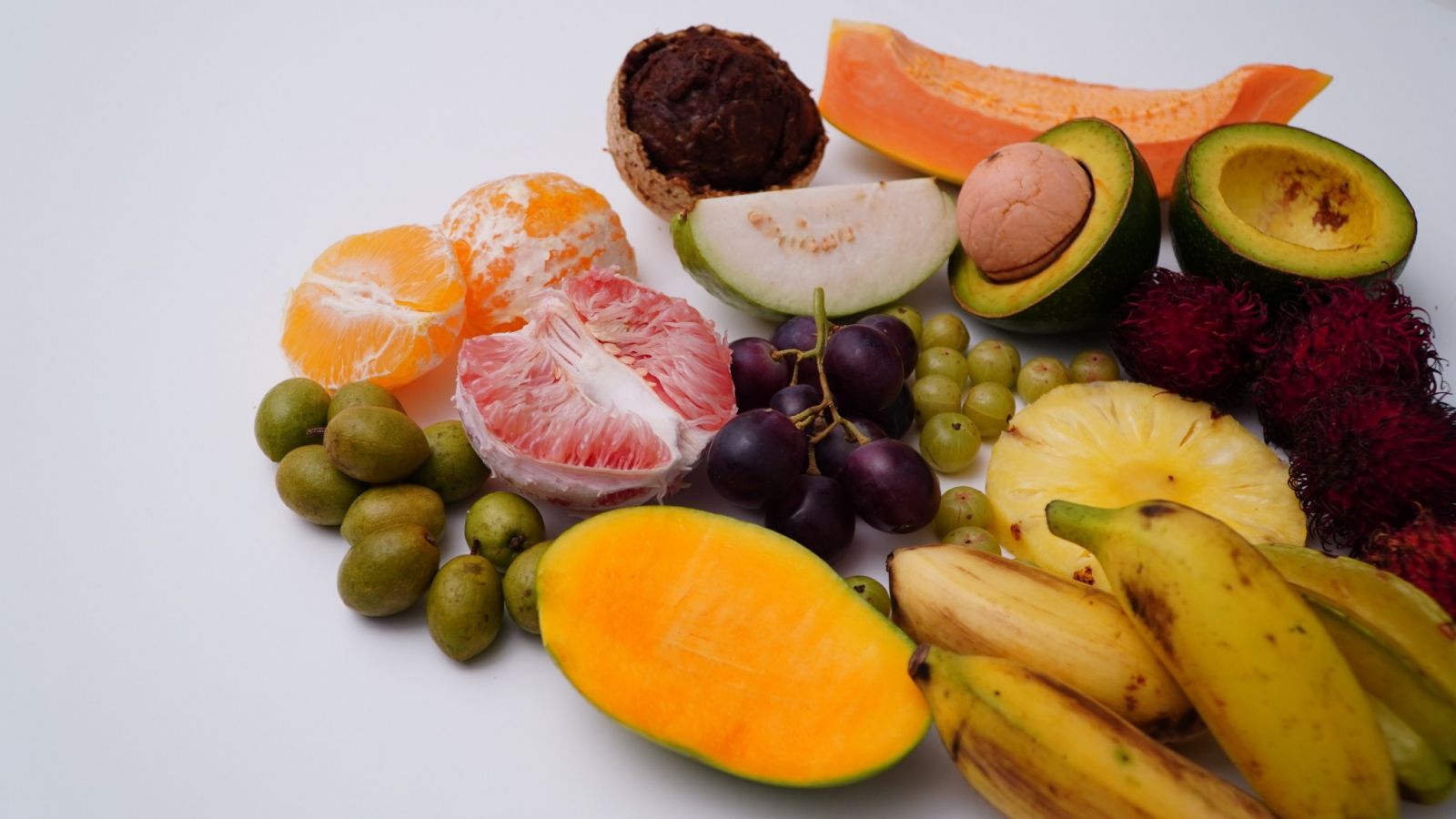
Coloured fruits. Photo by PM Shamika on Unsplash
It's amazing how fruits support our bodies. Over the centuries that life has begun, fruits have continued to be effective in the maintenance of man's overall health. When you talk about a healthy and sustainable diet, fruits are among the top 3!
Concerning improved vision, fruits are not left out, especially coloured fruits. They are an excellent source of vitamins A, B, C and E. The antioxidant activity of fruits helps our eyes ward off diseases, thus preventing their occurrence or reducing the risk of coming down with eye diseases.
Fruits that are commonly available across Africa that are best for your vision include:
This list is non-exhaustive. You can add your coloured fruit of choice to the list, do well to purchase it, and make this a habit for a clearer 20-20 vision!
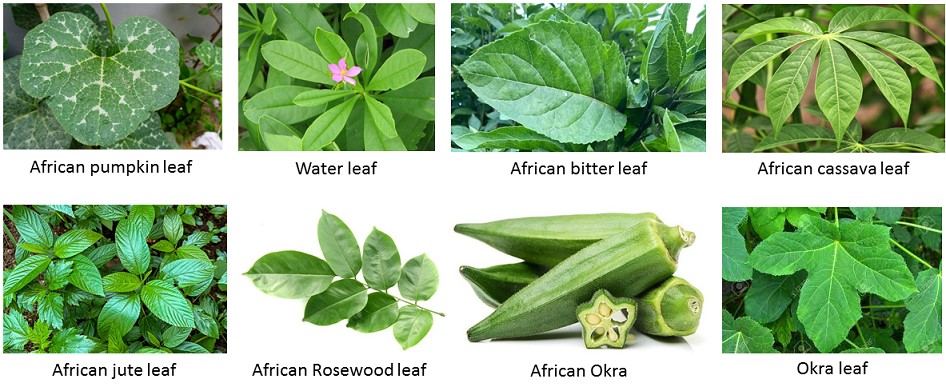
Dark leafy vegetables.
Yes! Talk about the heart of Africa, then you know it's the greens. Those greens you see in the market are great for your vision.
Raw and cooked Spinach (commonly called Morogo in Sesotho (South Africa) and Efo-tete in Nigeria), cooked kale (commonly called Efo Igbo in Yoruba), cooked broccoli, raw lettuce (known as Agblòke in Ghana, Efo yanri in Yoruba, and Kissi in Sierra-leone), Okro, and boiled green peas are great greens to eat for eye health.
These have a high level of Lutein and, or Zeaxanthin in them, which are eye antioxidants that get rid of dangerous invaders called radicals responsible for eye diseases.
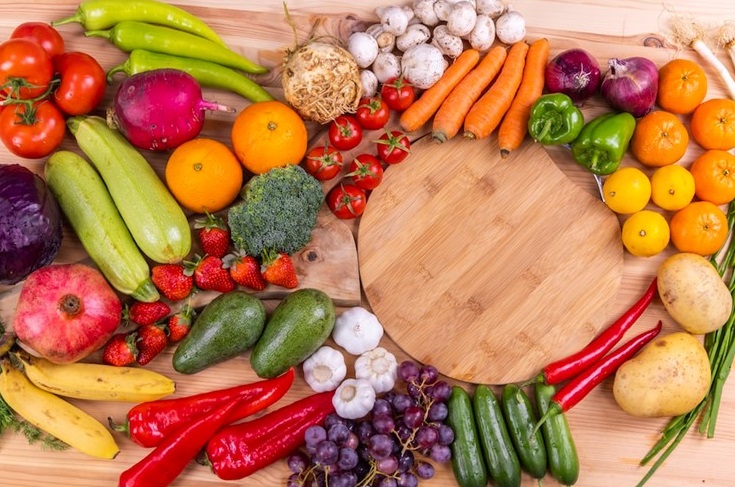
Coloured Vegetables. Photo by Engin Akyurt on Unsplash
Vegetables such as carrots, sweet potatoes, and tomatoes are rich in vitamins A and C, which in turn are useful for improved vision.
In herbal medicine, there's a term known as the Doctrine of signatures. An aspect of this doctrine describes the relationship between the similarity in shape of a plant and a body organ, including the way the plant in question can serve as a cure when the organ is not functioning properly.
Here is a good example: A carrot horizontally diced looks like the human eye. Thus, this doctrine claims that nature has put a sign by this similarity, thus affirming that carrots are good for the eyes.
Guess what? This claim as regards the carrot and the eyes is true. Carrots have vitamin A, which is good for the eyes as it prevents night blindness.
In plant sources, vitamin A is found as a carotenoid. Truly, retinol was coined from 'retina', an important component of the human eye that detects light and helps the brain recognize an image.
As humans, we don't produce vitamin A on our own. This is the reason why we need to consume it in our diets.
The absence of some nutrients in the diet is the cause of some eye problems. Cataract is an example. It is a leading cause of blindness in people over 40 years of age living in developing countries like those in Africa. Precisely, carotenoids like zeaxanthin and lutein when deficient in the body results in cataract.
Enough of the vitamin A lecture. We move on to the next!
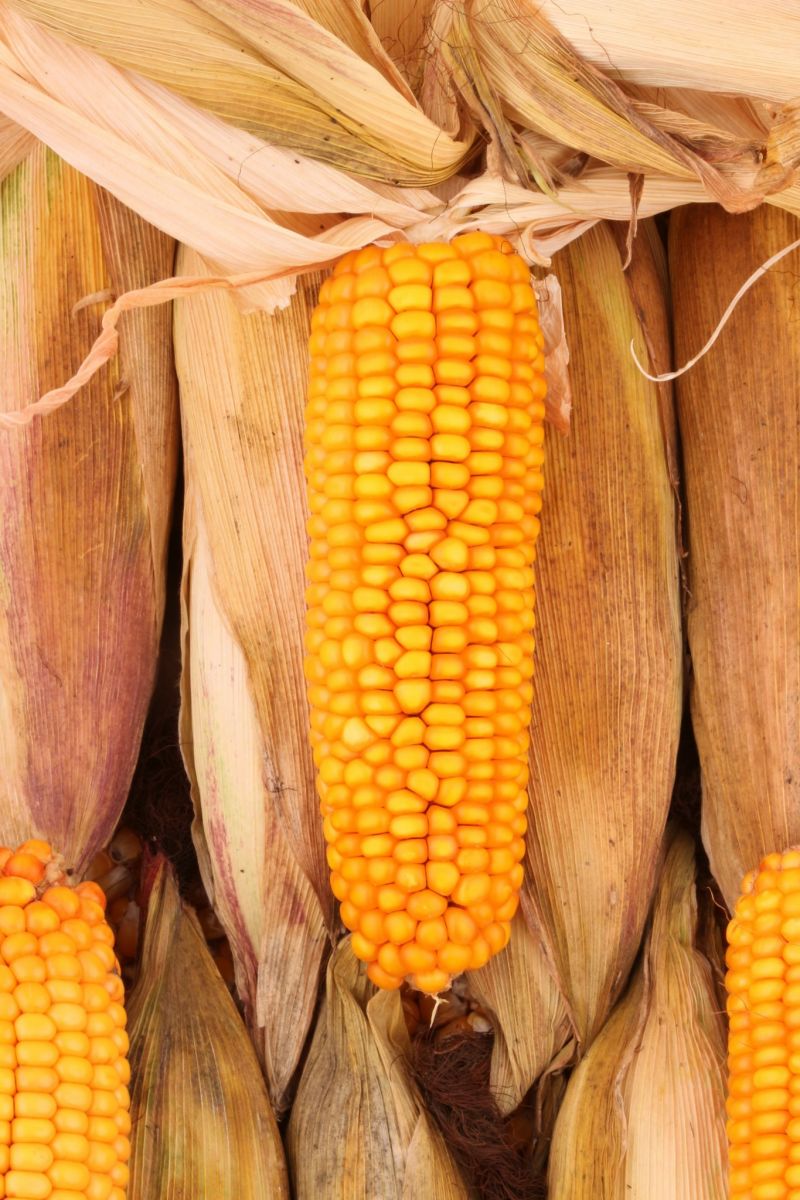
Yellow maize. Photo by Marek Studzinski on Unsplash
Have you begun to suspect colours in your mind? Coloured fruits and vegetables. Now, it's yellow maize! You can say that again!
Yellow maize gets its colour from lutein and zeaxanthin, just like some other coloured foods. Lutein and zeaxanthin make up a major part of the yellow spot in the retina of the human eye. There, they protect the macula of the eyes from damage by blue light, mop up harmful radicals, and improve your visual acuity.
Research shows that consuming foods rich in carotenoids as we have seen so far, leads to a reduced risk of coming down with two major age-related eye diseases- cataracts and Age-related macular degeneration (AMD).
If the corn used in food processing is rich in carotenoids like the yellow corn, then, we would have carotenoid-rich cereals and processed foods like corn flakes and corn flour. So, next time you go grocery shopping, go for yellow cornflakes and corn flour as they are likely to be richer in carotenoids due to the yellow maize used.

Fortified pastrries. Photo by Julissa Capdevilla on Unsplash
There are times when the processing of some foods results in some loss of their lutein or zeaxanthin content, and fortification comes into play.
Examples include high-lutein whole grain bread and high-lutein cookies.
Travelling to the great food options in ancient Egypt, bread prepared from green-harvested wheat like Freekeh and Kamuts (Khorasan wheat) is rich in lutein, selenium, and zinc. Durum wheat used in making pasta is not left out. It's a good source of lutein and zeaxanthin.
Talking about pastries, be mindful that most store pastries and cookies have high refined sugar content and you should eat those in moderation or look for and buy whole grain pastries with low sugar content
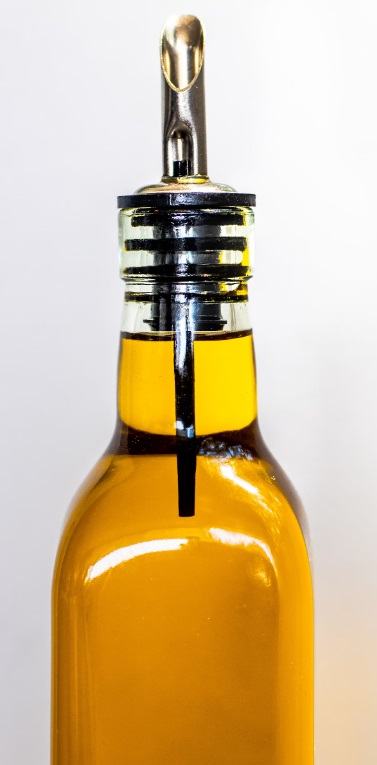
Photo by Jonathan Ocampo on Unsplash
There are some fats and oils that are not the best for your eyes, but not the types you're about to read on. Plant-based fats and oils are the best. So, watch out for them.
The retina is a multiple-layered tissue that is very rich in lipids. There is a minimum amount of lipids that need to be available for the body to properly use lutein and zeaxanthin, which are healthy for the eyes. Natural oils are lipids.
Consumption of oily fish such as those rich in omega-3- acids and omega-6-fatty acids was found to reduce the risk of age-related macular degeneration and sight-threatening diabetic retinopathy.
Food sources rich in omega-3-fatty acids are natural oils like coconut oil, olive oil, corn oil, flaxseed oil, soybean oil, canola oil, unbleached red palm oil, biruti palm oil, and fish oils found in salmon, mackerel, tuna, herring, and sardines.
Having 2-3 servings of fish every week is the recommended dietary allowance to ensure the maintenance of healthy eyesight.
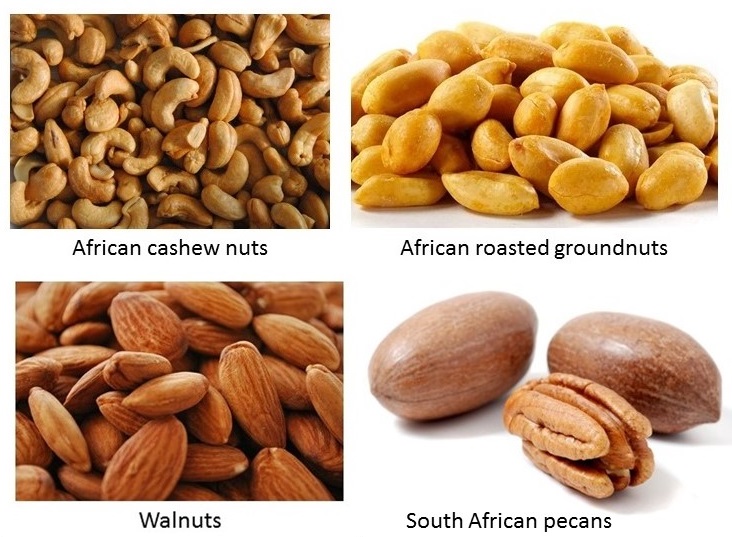
Varieties of nuts found in Africa
Nuts are not left out when it comes to the eyes. They are of great value. So, why not grab eye-healthy snacks like African roasted groundnuts, cashew nuts, walnuts (commonly called ukpa or asala in the Western part of Africa), tiger nuts, almonds, pecans and kernels. These are known to be rich in vitamin E, Selenium, and Zinc.
Nuts also have high antioxidant activity capable of preventing eye diseases.
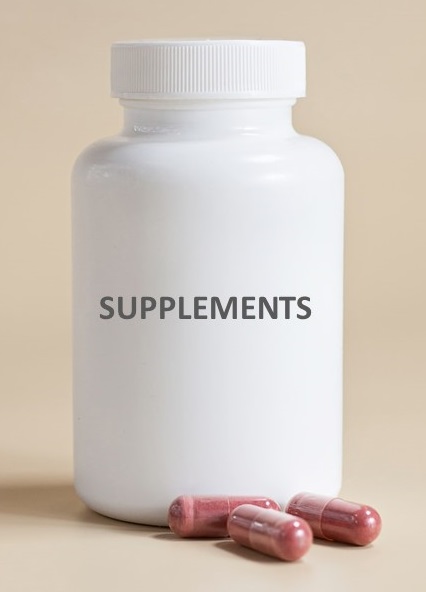
Bottle of supplements. Photo by Supliful - Supplements On Dema
The next time you walk into a pharmacy, request the eye supplements available and attempt to relate it to what you have read in this article. Watch out for lutein, zeaxanthin, omega-3-fatty acids such as Docosahexaenoic Acid (DHA), Eicosapentaenoic acid (EPA), and Alpha- linoleic acid (ALA), selenium, zinc, copper and others.
When you notice these eye-healthy constituents, know that you have found a good eye supplement. The purpose of supplements is due to the difficulty encountered with getting all the needed eye nutrients from our diets. Some of these nutrients are not produced by our body systems, hence we need the nutrients from our foods to meet up with these diets.
The problem with food devaluation is that it takes more of the same fruit or vegetable to produce a quantity that is beneficial to the body.
On a contrary note, some research conducted revealed how the use of eye supplements didn't make any difference in whether or not people came down with eye diseases like cataracts and age-related macular degeneration. It was concluded that the consumption of a normal balanced diet is sufficient to provide all the vitamins you need.
This directs us back to the importance of eating healthy.
Are you a fan of bland junk or comfort food? Are they your constant source of energy? Then, it's doing no good to your health. Foods that are high in saturated fats or fried in saturated fats like fried plantain, Nigerian puff-puff, margarine, animal-based oils, and sweetened foods like cookies, high sodium-containing foods, and snacks, especially fast foods do not benefit eye health in the long run.
A link has been established between the consumption of a diet rich in saturated fats, and trans fats (unhealthy fats) and eye health. High-fatty diets affect the shape, size, and function of the eye tissues leading to oxidative stress and inflammation.
The challenge with junk foods is that they are lacking in the vitamins and minerals that are necessary for the body. The subject of blindness is not just limited to old age. Young people who fail to take heed to a healthy diet can have eyesight defects early in life if their body system is nutrient-deficient.
An example is the story of the teenage boy who loved picky eating and who had been living on potato chips, fries, white bread, ham, and sausage for a long time. By age 17, he had lost his sight (blindness) and sense of hearing (deafness).
Recommended daily need of micronutrients for health eyes. Click on image to enlarge.
Though a continent of many developing countries, Africa is blessed with a variety of diets, lots to eat, and a lot to choose from. Nuts, vegetables, fruits, and several types of staple foods support our overall well-being including our eyes.
It is your responsibility to maximize the opportunity of varied meals available in Africa that promote better eye health and cut down on processed foods that are known for high sodium, high fat, and high sugar as they do not benefit eye health.
Do well to remember that when you consume a healthy and balanced diet consistently, you would not need to take dietary supplements. If not, they are a good backup for you.
References:
1. Clarkson-Townsend DA, Douglass AJ, Singh A, Allen RS, Uwaifo IN, Pardue MT. Impacts of high fat diet on ocular outcomes in rodent models of visual disease. Exp Eye Res. 2021 Mar;204:108440. doi: 10.1016/j.exer.2021. Available from here.
2. Informedhealth.org. [Internet]. Cataracts: Can vitamin supplements help maintain your vision? Last updated: Oct. 19, 2019. Accessed 14, Dec. 2023. Available from here.
3. World Health Organization (WHO). Blindness and visual impairment. [Internet]. Last updated: 10 August 2023. Accessed 14 Dec. 2023. Available from here.
Published: December 9, 2023
Updated: July 20, 2025
© 2023 - 2025. Datelinehealth Africa Inc. All rights reserved.
Permission is given to copy, use and share content without alteration or modification and subject to attribution as to source.
DATELINEHEALTH AFRICA INC., is a digital publisher for informational and educational purposes and does not offer personal medical care and advice. If you have a medical problem needing routine or emergency attention, call your doctor or local emergency services immediately, or visit the nearest emergency room or the nearest hospital. You should consult your professional healthcare provider before starting any nutrition, diet, exercise, fitness, medical or wellness program mentioned or referenced in the DatelinehealthAfrica website. Click here for more disclaimer notice.